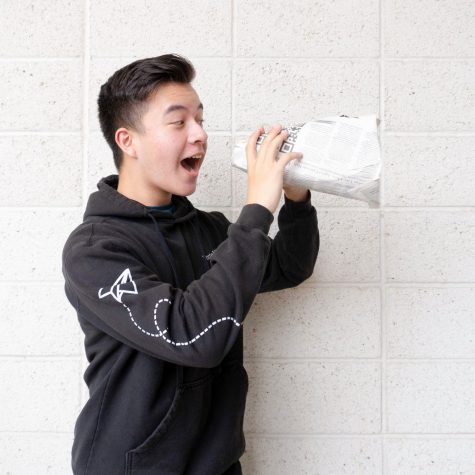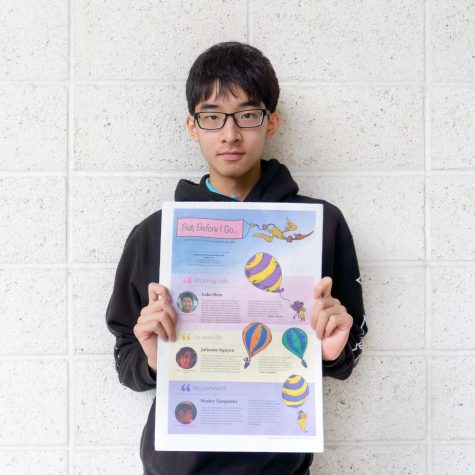H2H: How Accessible Should Advanced Placement Courses Be for Underclassmen?
November 23, 2020
Offering More APs to Underclassmen Will Enrich Their Education
Portola High prides itself as a highly-competitive school campus, yet our school’s Advanced Placement (AP) curriculum neglects its underclassmen students. Out of the 22 hybrid AP courses offered this year, three are available to sophomores and zero to freshmen.
Given the impact of AP enrollment on post-secondary education, more AP courses should be available for underclassmen students to supplement their academic pursuits.
AP courses give high school students opportunities to explore various career paths and college-level disciplines. They offer weighted GPA points, provide students with a chance to experience post-secondary rigor and satisfy college credits, thereby reducing college finances, according to the College Board.
At Portola High, AP Human Geography, AP Art History, and AP Computer Science are the only AP courses offered to sophomores.
“There are only [three] AP classes, so I didn’t really feel like I had much diversity for what I could pick,” AP Human Geography student and sophomore Nicholas Nieto said. “If I was someone who didn’t like human geography, but I really wanted to get a headstart in Advanced Placement classes, it would be a rough [choice] for me.”
Juniors received more than 16 AP course offerings this year: a stark contrast from just three to sophomores. For senior Sonia Goyal, this academic gap culminated in a curricular bottleneck in which doubling-up on AP courses as an upperclassman was necessary to explore her educational interests and receive post-secondary credit before college.
“There is that pressure to load up on your APs in your last two years [of high school] because those are the only opportunities you get for APs,” Goyal, who is enrolled in four AP courses, said. “Offering more APs earlier on gives students more time to expose themselves to that course and get adjusted when the junior year and senior year are already stressful times, and they have to adjust very quickly.”
Comparatively, Woodbridge High offers seven AP courses to its underclassmen. Out of the school’s 977 AP students – including underclassmen – 87.5% received AP exam scores of three or greater in 2018, according to the 2018-19 Woodbridge High school profile.
“[AP courses] really help prepare you for the general level of work,” AP Human Geography teacher Shameemah Motala said. “I think [offering more APs to underclassmen] depends on the student as well as the department whether the department has classes that are suitable.”
Indeed, not every AP course will be suitable for underclassmen, particularly those that rely on concepts taught in previous classes. And given the rigor of these courses, it is true that upperclassmen and underclassmen alike will endure academic challenges.
However, many of our school’s AP courses – including AP Human Geography, AP Economics and AP Psychology, among others – do not, in fact, rely on previously-taught concepts and have no formal prerequisites aside from grade-level alone.
With this said, it is obtrusively wrong to assume that age and grade alone are accurate indications of maturity and cognitive abilities. Additionally, it is counterproductive to expect our underclassmen to be unsuccessful in the AP curriculum when they receive few AP opportunities to begin with.
Detractors may also argue that underclassmen would overextend themselves with greater AP offerings; however, this argument disregards that enrollment attitudes are unique to every student. Limiting AP offerings because of this narrow, collective assumption about underclassmen is ignorant and demonstrates a lack of faith in younger students.
Furthermore, AP courses reinforce students’ “essential time management and study skills needed for college and career success,” according to the College Board. If underclassmen cannot develop these skills with ample AP courses, how can we simultaneously expect them to be prepared for our school’s rigorous junior and senior year offerings?
Our school’s administration must reevaluate its AP curriculum and offer more of these courses to freshmen and sophomores; however, these courses must be prudently selected based on their current prerequisites and suitability for new AP learners.
In a time when the youth is becoming increasingly exemplary in their fields of interest, it is critical to ensure that our underclassmen receive the academic resources they need to take their education to even greater heights.

Ryne Dunman is the Co-Editor-in-Chief for his second and final year on the Portola Pilot. This year, he’s excited to make new memories in-person and...
Allowing Underclassmen More AP Choices Poses Too Great a Risk
Focusing on subjects ranging from literature to chemistry, Advanced Placement (AP) courses undoubtedly have the potential to enrich the academic experiences of Portola High’s student body. With this in mind, it may at first appear odd that out of 22 AP courses offered, only two are freely accessible to freshmen and sophomores. However, extending the availability of AP courses for freshmen and sophomores poses substantial risks.
For one, offering sophomores more diverse AP options may lead to students without extensive experience in high school classes struggling with courses already above the high school level. By definition, AP courses parallel the depth that one would see in a college-level course, posing demanding course expectations for those who elect to take them.
Even if measures, such as a weighted course limit, are maintained to prevent students juggling multiple difficult courses, underclassmen in pursuit of such AP courses as U.S. History would still find themselves at a disheartening disadvantage. Far from an accommodating step towards other AP courses in 11th and 12th grade, the analysis-driven curriculum of the social science course leads only a third of students to earn ‘well-qualified’ scores of 4 or 5, from data provided by the College Board. Skills that would otherwise have been developed through the course of freshman and sophomore year would be put to the test, potentially leaving some students fighting for air, according to AP U.S. History teacher Wind Ralston.
“My course is rigorous, and students struggle with not only the content, but the … analytical component that is key to doing well in AP courses,” Ralston said. “We want kids to be able to explore their passions and explore APs. We don’t want to saddle [them] with too much too early, and then have [them] walk away from [a course] feeling unsuccessful.”
Other schools in the Irvine Unified School District indeed offer AP U.S. History or AP European History to their own sophomores, in contrast to Portola High’s AP Human Geography and AP Art History. However, adding this set of options to Portola High would provide few benefits. Ryan Men, a sophomore at University High, notes that he, along with a majority of 10th-grade students taking AP U.S. History, face a persistent uphill battle.
“I think, personally, my courses [in freshman year] prepared me a little bit. They didn’t prepare me very well, but they prepared me well enough so I could survive,” Men said. “The thing is, the AP teachers still demand a lot more, and they complain a lot about how the ninth-grade teachers have not prepared the students enough.”
Stories of survival like Men’s reaffirm the need for students to evaluate the ways in which their learning experiences are guiding them beyond an AP course, says literary and language arts teacher Desmond Hamilton.
“One of the things that we, as language arts teachers, often think about, and often talk about, is making sure that students that are taking AP courses recognize the significance and importance of taking these courses,” Hamilton said.
The significance of these AP courses in students’ own lives can be realized through the specialization that honors and even college prep courses provide. According to College Board’s BigFuture program, the demonstration of interests and qualities is an important part of the college application process. A deliberate progression through non-AP courses to the AP level can help towards that end.
“I’ve had students take American History with me, and then they wanted to take AP U.S. History with me because they enjoyed the way I taught. [Likewise], Mrs. Schottland gets people in Contemporary Issues because she had them in World and they enjoyed her class,” Ralston said. “Our social studies department [has] worked really hard to give opportunity and options.”

Justin Tang is the Portola Pilot’s Back Page Editor for the 2021-22 school year, his second and last on the team. Throughout the year, he’ll make sure...

